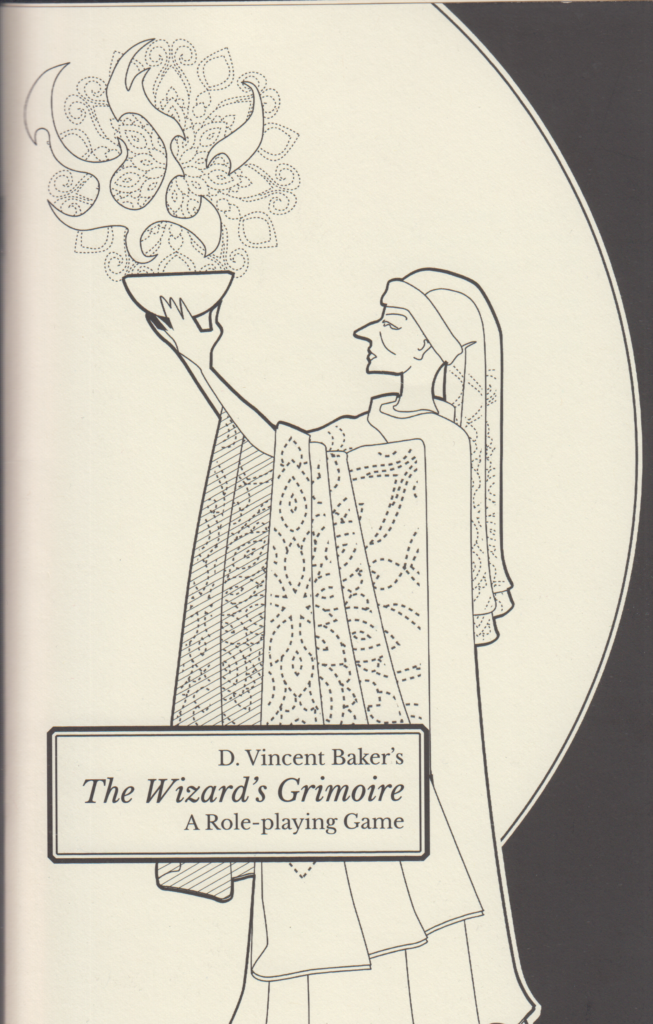I’m on a study project to improve my understanding of roleplaying games. To this end, I already have two reading projects, A Game Per Year and An Adventure Per Year. This is the third, with the goal of reading or playing 52 games made in the last few years. Originally I considered making this “A New RPG Per Week” and that’s where the number 52 comes from, even though a weekly schedule is probably not within my abilities.

The Wizard’s Grimoire is a Zine Quest roleplaying game from Kickstarter’s promotion earlier this year, by D. Vincent Baker. It has an unusual and interesting structure: The player plays a wizard who deciphers a grimoire, gets into trouble and gets out of trouble. To adjudicate these situations, the player recruits two friends who take on some of the tasks of being a GM by answering questions from the player as required.
To complicate matters further, playing the game may result in the surprise adding of a second player who must then be recruited on the spot. It feels like the game is suited for casual, improvised play at roleplaying conventions: The situations it involves can be brief or involved and benefit from having extra people around.
For me, one of the most interesting running themes in Baker’s work is the tension between idiosyncratic, poetic language and game mechanical clarity. Baker has a very distinctive writing style that has spread far beyond his own works thanks to the influence and success of his earlier game Apocalypse World.
In The Wizard’s Grimoire: “You can exert yourself magically to unveil your wizardous senses.”
I’m sure you and I could both express that same concept with language that had more immediate clarity, but would it sound as cool? More specifically, would it sound as clearly like a D. Vincent Baker game?
Another example is magic allowing you to: “Recite an Ominous Dissuasion.” For me, it always takes a few attempts to read this type of rules text before I figure out the meaning. There’s a process of language-related discovery involved. I once remember reading the French philosopher Paul Virilio quoted as saying that a book should “resist the reader”.
As an important part of the play experience, the game includes The Signature of Aibesta of the Two Courts, a grimoire that can be deciphered section by section by the player wizard with different results. The interesting thing about the grimoire and also the rules for “asserting your wizardous dominion over a workplace” is that it creates a sealed, self-centered experience of being a wizard on a quest for discovery. There’s a curious commingling of inner and external voyages as even when the wizard moves and acts in the world the play act is nevertheless construed so that the wizard players asks questions from the helpers to develop in-game situations. It’s always about the wizard, with an external world revolving around them.